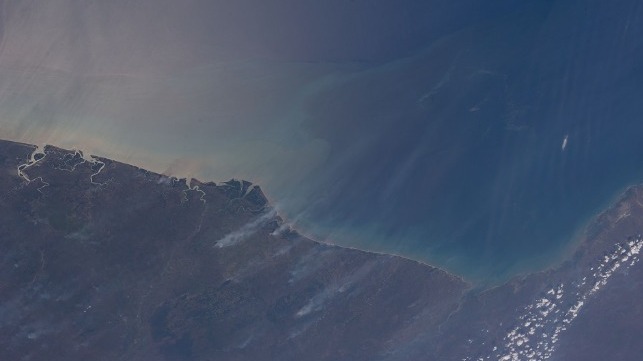Mozambique's Growing Insurgency May Pose Threat to Shipping

The insurgency in Northern Mozambique is steadily morphing into a serious maritime security threat in the Western Indian Ocean. On March 24, militants linked to the Islamic State (IS) group conducted a bloody ambush in Palma - a coastal town near Total’s Mozambique LNG offshore gas project - leaving tens of people dead and others injured. This attack lends credence to speculation that the jihadist militants are growing in sophistication and capability.
No sooner had Total resumed operations on its gas project after a two-month security hiatus than the insurgents descended on Palma. This suggests that the planning of the attack was informed by intelligence reports on when Total would resume the project. Some contractors and delivery company workers - most of them expatriates - who got caught in the ambush are still unaccounted for, and it appears to be another direct attack targeted at Total’s operations in the area.
Since their first attack in 2017, the insurgents in Cabo Delgado province have shown increasing capability in conducting amphibious attacks. In one deadly strike last year, they managed to seize (and briefly hold) the key seaport of Mocimboa da Praia. In addition, maritime trafficking of Afghan heroin is believed to be a source of funding for the militants, although this is unconfirmed.
With this adeptness in maritime activities, it may not take long for the insurgents to make a foray into piracy. This would be a new risk for the Southern African region and the Mozambique Channel, where 30 percent of the world's tanker traffic transits.
In terms of its response to this rising insurgency, Mozambique’s government seems hamstrung to maintain stability in Cabo Delgado. Its debt-ridden economy is reflected in a military funding deficit, which may have contributed to a delay in response to the most recent attack. A humanitarian crisis is already unfolding in the province, as approximately 600,000 people have been internally displaced by the chaos.
ISS Africa (Institute for Security Studies) once described Mozambique's government as adopting the African playbook in its response to terrorism and violent extremism. It is a similar strategy to Nigeria's initial approach to tackling Boko Haram - first, deny that the insurgency exists, but when overwhelmed, rush to the African Union to seek for help. Efforts to overwhelm the militants with military force have remained unsuccessful and foreign assistance from mercenaries appears uncoordinated. Although the insurgency is mainly a Mozambican national security concern at the moment, it will be a matter of time before it spills over the borders and takes a transnational nature.
There is a proliferation of external military assistance from western nations - among them France, Portugal and the U.S. - but for purposes of a long term solution, the SADC (Southern African Development Community) and African Union (AU) should take the leading role. These are the institutions that are best placed to handle the local jihadist movement in Northern Mozambique, along with the local grievances that the militants leverage to radicalize young people.

that matters most
Get the latest maritime news delivered to your inbox daily.
However, the priority right now is to regain control of the security situation. This is where the AU’s Peace and Security Council (PSC) through SADC can render itself useful. As of now, these two institutions have not made any significant move to quell the Mozambique situation or to provide humanitarian aid to the displaced persons. A joint military exercise under the jurisdiction of SADC can greatly supplement the Mozambique Army with a central command center. SADC already boasts 16 member countries - including South Africa - which can be mobilized to offer ground, air and naval surveillance.
Great economic damage has already been incurred, with the development of billions of dollars' worth offshore gas deposits stuck in limbo. There is a possibility that Total might decide to operate from the French island of Mayotte in the Mozambique Channel, costing employment opportunities on the mainland. Maritime security in the East and Southern African region is also at stake if Al-Sunnah’s growth continues unabated.
